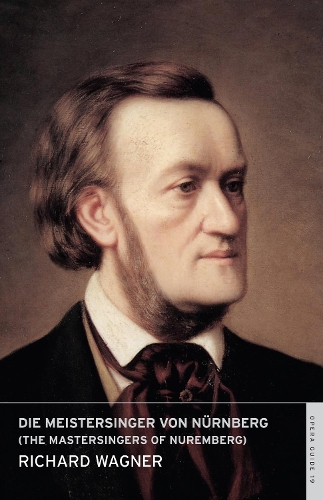
Die Meistersinger von Nurnberg (The Mastersingers of Nuremberg)
(Paperback)
Publishing Details
Die Meistersinger von Nurnberg (The Mastersingers of Nuremberg)
By (Author) Richard Wagner
Volume editor Nicholas John
Alma Books Ltd
Overture Publishing
24th October 2016
United Kingdom
Classifications
Physical Properties
Paperback
136
Width 138mm, Height 216mm, Spine 10mm
200g
Description
This opera has been described as "the longest single smile in the German language". But Roland Matthews indicates that violence is not far beneath the surface of this portrait of medieval Nuremberg. Arnold Whittall's analysis gives a bird's-eye view of the complexity of the score. Timothy McFarland explores the significance of the choice of subject: that nostalgia for a pre-industrial community, which was a symptom of the German nationalist movement. The long text has many subtleties which opera audiences can hardly appreciate without reading it, and the musical themes are numbered to indicate where they occur. Contents: 'My most genial creation...', Roland Matthews; A Musical Commentary, Amold Whittall; Wagner's Nuremberg, Timothy McFarland; Die Meistersingers von Nurnberg: Poem by Richard Wagner; The Mastersingers of Nuremberg: English translation by Frederick Jameson, revised by Gordon Kember and Norman Feasey
Reviews
"Wholehearted recommendation of this valuable new series." "TLS"
Author Bio
Richard Wagner (1813-83) was a composer who drew inspiration from Christian and Nordic mythology, as well as the philosophy of Schopenhauer, to pioneer dramatically new forms of music. His concept of the "Total Artwork" led to the construction of the Bayreuth Festspielhaus, an opera house he designed specifically for productions of his own operas. He also wrote widely on music and art. His operas include Tristan und Isolde, Die Meistersinger von Nurnberg and the four parts of Der Ring des Nibelungen.
